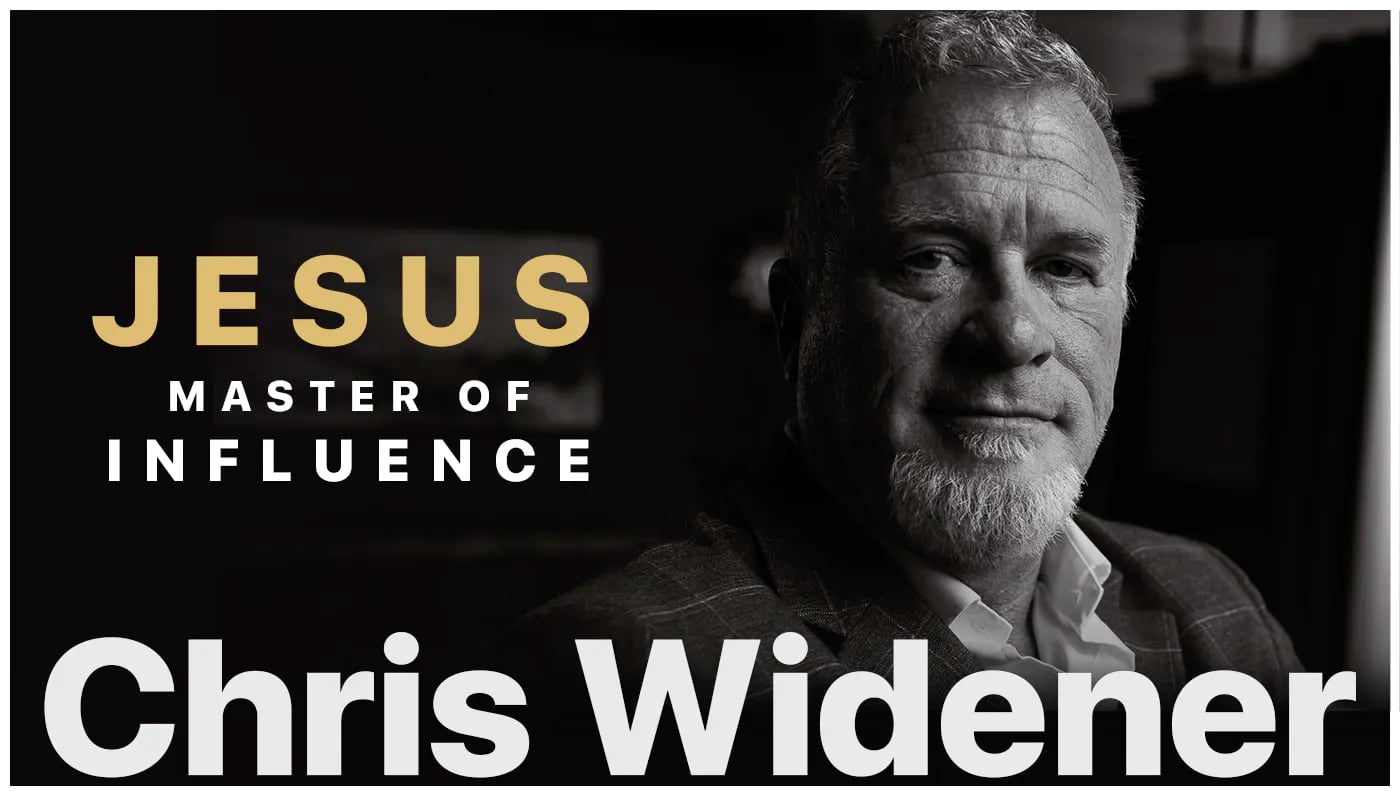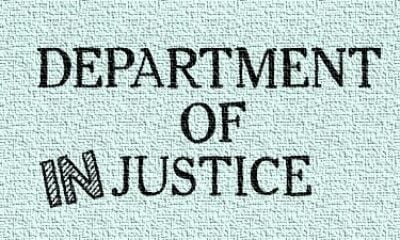

Business
The Tensions that Will Define America’s Future
Energy Scarcity or Energy Abundance: Affordable energy is needed for economies to prosper and citizens to reach their own potential. With the current administration’s rejection of fossil fuels and promotion of specific alternative energies, energy scarcity with its inflationary pressure is winning the day. Within the next ten years, increased use of nuclear energy, less restrictions on fossil fuels, and developments in fusion energy will help reestablish energy abundance.
Embracing Technological Innovation or Rejection of Technology: Rapid technological innovation and artificial intelligence (AI) have increased our dependence on devices to perform daily activities. This trend will increase with those rejecting such advances falling behind and limiting their employment opportunities. Today, embracing innovation is winning the future, but there are dangers on the horizon. Will the AI innovations we create eventually create machine cognition that becomes hard to control increasing resistance?.
Human Relationships or Virtual Reality: You don’t have to look far to see the preoccupation with smart phone interaction in place of actual social conversations. Expect that metaverse advances in the use and quality of virtual reality (VR) interaction and augmented reality (AR) headsets will become more intense and attractive. True relationships take time, can be frustrating, and are seldom as consistently satisfying. Sadly, pornography will likely be leading the way in driving the expansion of virtual reality. This powerful force will strike a blow at our social fabric and cohesion.
Government Dependence or Personal Responsibility: Biden’s administration has argued for guaranteed income and established more government entitlements. With a small Republican majority in the House and Biden’s veto power, more citizens remain dependent on the government, and those producing services and products face increased taxes. The conflicting draw of socialism and capitalism will always be with us, but free-enterprise capitalism will win the future on the basis of economic results.
Soft on Crime or Strong Enforcement: We’ve witnessed increased criticism of law enforcement abuse and growing demands to defund the police. Traditionally, one of the basic functions of a civil society is for authorities to hold people accountable for crimes and protect citizens and their property. Far too many district attorneys and politicians are refusing to prosecute criminals and are calling for gun control. With citizens feeling unsafe, guns and private security systems have proliferated. The growing call for stricter enforcement will continue to grow in response to the riots and increases in crime. Law and order is a winning campaign issue for 2024 and beyond.
Peace or War: The longing for peace and the reality of war have always been with us. With the proliferation of more powerful weapons, waging war is far more destructive. There is hope that diplomacy, global economic interdependence, and the resulting economic opportunity will be enough to maintain world peace and limit destructive conflict. Unfortunately, the existence of biological, nuclear, EMT weapons makes the likelihood of mutual destruction a frightening reality. The current open conflict in Ukraine gives war a scary advantage for the immediate future.
Out of Many One or Out of Many Tribes: The civil rights movement and the dream of Martin Luther King Jr. was to make our motto e pluribus unum, “out of many one,” a reality. Since that time there has been a strong focus and progress in eliminating racial bias. Recent societal forces have worked to divide citizens by skin color to justify ‘special interest” rewards for certain groups. A reaction to this new “tribal racism” is beginning to gain support and fuel a fight against special interest reparations for past racism. Expect a hard-fought resistance to reparations and a renewed call common rights and responsibilities for all citizens, no matter their age, gender, race, or ethnicity.
School Choice or Public Schools: After the poor performance and questionable indoctrination from public schools, there is a strong drive for school choice. Parents want more control over what schools children attend and what they are taught. With strong minority support, this is a trend that will win the day and result in a better education for our children.
Open Borders or Controlled Immigration: There is no question that we need more workers to continue to drive our economy. With the flow of drugs and illegal immigrants adversely impacting cities throughout the country, there is renewed interest in controlling our borders. Expect a resurgence in demands for secure borders, accountability for drug cartels, and increases in legal immigration.
Greed or Compassion: America has always supported individuals pursuing happiness and success, but it has valued others being able to do the same. A commitment to compassion supports benevolent self-interest where compassion for one’s fellow man is realized as the only way for all to thrive. Care for one’s community over selfishness will remain a strong force that should win the day in coming years.
Secular or Sacred: America has been a Judeo-Christian country that anchored its freedoms and future in the assurance of a loving God who cares about every individual and demands ethical behavior. Dostoevsky’s would observe, “If there is no God, everything is permissible.” Without faith, ethical absolutes are not shared. Although there’s been a decrease in church attendance, there seem to be signs of a spiritual revival. In tough times, people search for and depend on God. Expect a renewed focus on faith, ethics, and involvement in religious communities in the challenging times ahead.
At any given time, all of these tensions become forces that define what the future holds for countries and individuals. There are dangers ahead that must be managed, but tough times develop stronger citizens and demand more responsive politicians. Those who thrive in these times will do so by finding ways to tap and capitalize on the ascending forces impacting society. Thankfully for America, President Biden’s radical liberal changes have created strong counter forces that will result in a rejection of many unpopular changes and fuel a call for more conservative policies and priorities.
Purchase Dr. Paulson’s newly released ”Joy Comes with the Morning” course today! Get ready to enjoy the 31 short, recorded messages on your computer or smart phone. Each message is designed to expand and enhance your joy-filled faith experience whenever you need or want it. Visit tomeapp.com/joy to start bringing more Christian joy to your morning today. Contact him at [email protected].
We'd love to hear your thoughts about this article. Please take a minute to share them in the comment section by clicking here. Or carry the conversation over on your favorite social network by clicking one of the share buttons below.
Join the conversation!
We have no tolerance for comments containing violence, racism, profanity, vulgarity, doxing, or discourteous behavior. Thank you for partnering with us to maintain fruitful conversation.
Business
Work-Life Balance in Your Life
It the ability to experience a sense of control and to stay productive and competitive at work while maintaining a happy, healthy home-life
Work-life balance (WLB) is the ability to experience a sense of control and to stay productive and competitive at work while maintaining a happy, healthy home-life with sufficient leisure. WLB, also referred to by some as work-life harmony, work-life shift, work-life blend, work-life effectiveness, or work-life integration, requires focus and awareness despite seemingly endless tasks and activities competing for our time and attention.
Work-life balance entails having what I call “breathing space” for yourself each day, feeling a sense of accomplishment while not being consumed by work, and having an enjoyable domestic life without short-changing career obligations. WLB is rooted in whatever fulfillment means to you within the course of a day and a week, and however many years you have left in your life.
Supporting Disciplines
Several disciplines support work-life balance though, individually, none are synonymous with work-life balance:
1) Self Management
Sufficiently managing one’s self can be challenging, particularly in getting proper sleep, exercise, and nutrition. Self-management is the recognition that effectively using the spaces in our lives is vital, and that life, time, and available resources are finite. It means becoming captain of our own ship; no one is coming to steer for us.
2) Time Management
Effective time management involves making optimal use of your day and the supporting resources that can be summoned – you can only keep pace when your resources match your challenges. Time management is enhanced through appropriate goals and discerning what is both important and urgent, versus important OR urgent. It entails understanding what you do best and when, and assembling the appropriate tools to accomplish specific tasks.
3) Stress Management
By nature, societies tend to become more complex over time. In the face of increasing complexity, stress on the individual is inevitable. More people, noise, and distractions, independent of one’s individual circumstances, require each of us to become more adept at maintaining tranquility and being able to work ourselves out of pressure-filled situations. Most forms of multi-tasking ultimately increase our stress, while focusing on one thing at a time helps decrease stress.
4) Change Management
In our fast-paced world, change is virtually the only constant. Continually adopting new methods, adapting old, and re-adapting all methods is vital to a successful career and a happy home life. Effective change management involves offering periodic and concerted efforts so that the volume and rate of change at work and at home does not overwhelm or defeat you.
5) Technology Management
Effectively managing technology requires ensuring that technology serves you, rather than abuses you. Technology has always been with us, since the first walking stick, spear, flint, and wheel. Today, the rate of technological change is accelerating, brought on by vendors seeking expanding market share. Often you have no choice but to keep up with the technological Joneses, but rule technology, don’t let it rule you.
6) Leisure Management
The most overlooked of the work-life balance supporting disciplines, leisure management acknowledges 1) the importance of rest and relaxation, 2) that “time off” is a vital component of the human experience, and 3) that one can’t indefinitely short-change leisure without repercussions. Curiously, too much of the same leisure activity, however enjoyable, can lead to monotony. Thus, effective leisure management requires varying one’s activities.
Entirely Achievable
Achieving work-life balance does not require radical changes in what you do. It is about developing fresh perspectives and sensible, actionable solutions that are appropriate for you. It is fully engaging in life with what you have, right where you are, smack dab in the ever-changing dynamics of your existence.
– – – – –
Business
Work-life Balance: The Enduring Quest
Organizations today recognize the importance of supporting employees’ well-being while maintaining productivity
Thank goodness that organizations today increasingly recognize the importance of supporting employees’ well-being while maintaining productivity. As such, the corporate quest for work-life balance, harmony, and integration has gained great prominence.
Key Aspects
Here are 12 key aspects of this pursuit gleaned from a variety of programs:
1. Offer Flexible Work Arrangements: Offering flexible work schedules, remote work options, and part-time opportunities allows employees to better balance their professional and personal lives.
2. Have Clear Policies: Establishing clear policies and guidelines regarding work hours, overtime, and expectations helps employees manage their time effectively.
3. Support Mental Health: Providing access to mental health resources, counseling, and stress management programs can address employees’ emotional well-being.
4. Give Leave: Offering generous paid time off, including vacation, sick leave, and parental leave, allows employees to address personal and family needs without fear of repercussions.
5. Prevent Burnout: Encouraging employees to disconnect from work-related technology after hours helps prevent burnout and supports work-life separation.
6. Support Workload Management: Ensuring that employees have manageable workloads and realistic deadlines prevents excessive stress and long working hours.
7. Provide Wellness Programs: Implementing wellness initiatives, such as fitness facilities, nutrition programs, and health screenings, promotes a healthier work-life balance.
8. Enable Employee Assistance Programs: Such programs provide confidential counseling and support services for employees facing personal challenges.
9. Promote a Culture of Balance: Company culture plays a significant role in work-life balance. Leaders should model a balanced lifestyle, and the organization should celebrate accomplishments beyond work.
10. Maintain Continuous Communication: Engaging in open dialogues with employees about their needs and concerns regarding work-life balance fosters a supportive and responsive corporate culture.
11. Empower Workers with Training and Education: Providing training on time management, stress reduction, and resilience equips employees with the skills to better balance their lives.
12. Leverage Remote Work Policies: Crafting clear remote work policies and expectations ensures that remote employees have a structured work-life balance.
Bringing in the Hired Gun
As the world’s only holder of the title, “The Work-Life Balance Expert®,” as issued by the USPTO, I am often summoned by organizations to enhance work-life balance for their troops. In all, I’ve delivered programs and spoken to 960 groups. Below depicts an encounter with a company who shall remain nameless for reasons of confidentiality. See if this squares up with your experience in your organization.
The following responses were derived as a result of my sending a questionnaire to the conference meeting planner where I was to be their keynote speaker. I requested the names of 10 people who would be in the audience. I called each of them to discuss their current challenges. Here are their actual replies to three of my questions:
1) If you could magically resolve a work-life balance issue, what would it be?
* Have more breathing room between high-level projects.
* Accomplish more during the workday and leave mentally free.
* Hire more staff!
* Take vacations and time off with no big pile ups when returning.
* Be allowed to take some Fridays off and catch up on much needed appointments.
* Reduce the number of pop-up requests and questions flying at me all day long so that I could ACTUALLY do what I need to do each day.
* Be approved to work from home or adjust my hours. My personal time isn’t respected.
2) What do you seek to derive from attending a session such as mine?
* Manage my time more effectively.
* Gain tools to embrace life while living it
* Develop stronger skills.
* Make work-life balance a reality in our company’s work-first culture.
* Acquire strategies, tips, or ideas to re-think my approach.
* Learn to change my focus, to be more productive, balanced, and focused.
* Be able to balance the few things that I do control during my day.
* Discover tips for keeping my staff in balance.
* Gain a realistic expectation of what we can achieve or experience.
* Develop a more positive outlook for the group.
3) Are there any observations you could offer?
* Work-life balance is a huge topic organization-wide. We are high performers who want to do a good job. We compromise our personal lives to meet work demands. We have to keep pace with the leaders and teams we support. If we don’t, we’ll be deemed unresponsive.
* A frenetic pace seems to be inherent in this company. Our team does a good job of emphasizing work-life balance; the problem lies with the surrounding divisions that thrive on working all the time, for no good reason. Yes, we are in a global space, working in different time zones, but some of these people are beyond the pale.
* What I love about this organization are the people. They are dedicated to the cause and truly want to deliver reliable, affordable, dynamic, and versatile solutions to our customers. However, our frenetic pace isn’t necessary. Not every project is the most vital. Not every problem is an emergency. Not every request has to be filled now.
* If in charge, I’d implement a more efficient, logical pace organization-wide. If we all took a breath and reevaluated how we work, in a more focused environment, we might find that we could produce better results with less stress.
Resonates Strongly
As you can see, the topic of work-life balance resonates strongly among today’s career professionals. Going forward, may more organization recognize and acknowledge the critical role that employee wellness and work-life balance has on the organization’s overall effectiveness.
– – – – –












